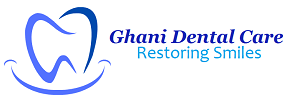When you lose a tooth, there are several replacement options: bridges, dentures, or dental implants. Among these, dental implants are considered the most advanced and natural solution.
Why Dental Implants Are Superior
- Look & Feel Like Natural Teeth – Implants are fixed in the jawbone and closely mimic natural teeth in appearance and function.
- Strong & Long-Lasting – With proper care, implants can last a lifetime, unlike dentures or bridges that may need replacement after a few years.
- Protect Jawbone – After losing a tooth, the jawbone starts shrinking. Implants stimulate the bone and prevent bone loss, keeping your face shape intact.
- No Effect on Neighboring Teeth – Bridges require cutting adjacent healthy teeth for support. Implants stand independently, protecting natural teeth.
- Better Chewing & Speaking – Unlike removable dentures, implants don’t move or slip, giving you full confidence while eating or speaking.
Pros of Dental Implants
- Natural appearance and feel
- Permanent, fixed solution
- Prevents bone loss and gum shrinkage
- Improves chewing and speech
- High success rate when placed by specialists
Cons of Dental Implants
- Require a surgical procedure
- Treatment time is longer (several months for healing and integration)
- Higher cost compared to dentures/bridges
- Not suitable for everyone (people with uncontrolled diabetes, heavy smoking, or severe bone loss may need extra care or bone grafting)
Precautions After Getting an Implant
- Avoid chewing hard foods (nuts, ice, very hard candies) on the implant side in the first few weeks.
- Do not smoke, as it reduces healing and implant success.
- Maintain regular follow-up appointments with your dentist to check healing.
- Inform your dentist if you feel pain, mobility, or swelling around the implant.
Cleaning & Maintenance of Dental Implants
Just like natural teeth, implants require daily cleaning to stay healthy:
- Brush twice daily with a soft-bristled toothbrush.
- Use interdental brushes or special floss designed for implants to clean between teeth and under the gumline.
- Mouth rinses (antibacterial or as prescribed by your dentist) help reduce bacteria.
- Regular dental checkups – visit your dentist every 6 months for professional cleaning and monitoring.
Takeaway:
Dental implants are the closest replacement to natural teeth, offering durability, beauty, and function. With proper care and cleaning, they can last a lifetime and keep your smile healthy and confident.

